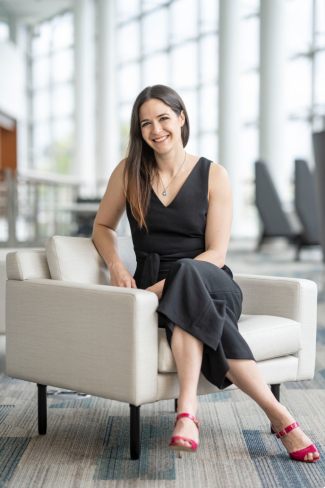A five-year, $8.9 million grant from the National Institutes of Health will help establish the Vanderbilt AUD Research and Education Center and bolster Vanderbilt University’s leadership in neuroscience, addiction research and innovative approaches to the study of alcohol use disorder.
This grant provides support for collaborative efforts among diverse researchers at Vanderbilt and from across the country, enhancing Vanderbilt’s role in alcohol and addiction research locally and nationally.
“This milestone underscores our unwavering commitment to solving society’s most pressing problems, like understanding the complexities of the brain and addiction, epitomizing the spirit of Discovery Vanderbilt,” Provost C. Cybele Raver said. “Through interdisciplinary collaboration, we aim to drive impactful change in understanding and treating alcohol use disorder, advancing health outcomes nationwide.”
VAREC’s innovative “precision neuroscience” approach will leverage human and animal models to identify the causes of AUD and potential treatments, as well as providing public education on the disorder. This newly established center will facilitate collaboration with the Vanderbilt Center for Addiction Research, which has similar goals.
The grant’s principal investigators are Erin Calipari, director of VCAR and assistant director of VAREC, and Danny Winder, chair of the Department of Neurobiology at UMass Chan Medical School, along with Jennifer Blackford, VAREC’s associate director and director of research at the Munroe-Meyer Institute at the University of Nebraska Medical Center. They and Cody Siciliano, assistant professor of pharmacology, are the four project leads.

“By focusing on precise circuits within the brain that control specific aspects of alcohol-associated behavior … we can understand exactly how repeated alcohol use changes the brain,” Calipari said. “Understanding these aspects of the disorder can lead to developing more targeted treatment strategies to ease symptoms of the disorder and improve treatment outcomes in individuals who are suffering.”
Another primary objective for VAREC will be education and outreach, which will be achieved by translating complex scientific findings into accessible information for the public. The center plans to engage the community and spark interest in addiction science through podcasts, webinars and a unique near-peer mentoring program.
With its dual focus on research and dissemination, VAREC aims to not only bolster Vanderbilt’s research capabilities but also enhance its standing as a hub for scientific discovery and public education on AUD.
The center plans to establish a course and provide scholarships for researchers from across the country to learn innovative neuroscience technologies at Vanderbilt, according to Calipari. “Through this course,” she said, “we are hoping to enrich the science community and give people access to the amazing resources at Vanderbilt.”
Also in the plans is a summer student program with stipends for students from underrepresented communities to work in addiction labs on campus. “The hope,” Calipari said, “is that we can get the next generation excited about doing addiction work.”
“Addiction is a disease. Promoting a deeper understanding of addiction fosters compassion and paves the way for solutions that can bring healing and hope to those affected by it,” said John Kuriyan, dean of the School of Medicine Basic Sciences. “The Vanderbilt Center for Addiction Research is an established leader in the field of addiction research. Its mission to unravel the causes of substance use disorders and bridge the gap between research and public awareness empowers individuals, communities and health care professionals alike.”
With the launch of VAREC, the center’s leaders anticipate making great strides in AUD research, educating the public and making a tangible difference in the community. “The great thing about this project (grant) is that it’s renewable at the end of the funding period,” Calipari said. “This work will continue at Vanderbilt far into the future.”
For more information on Vanderbilt’s addiction work, visit the VCAR website.
